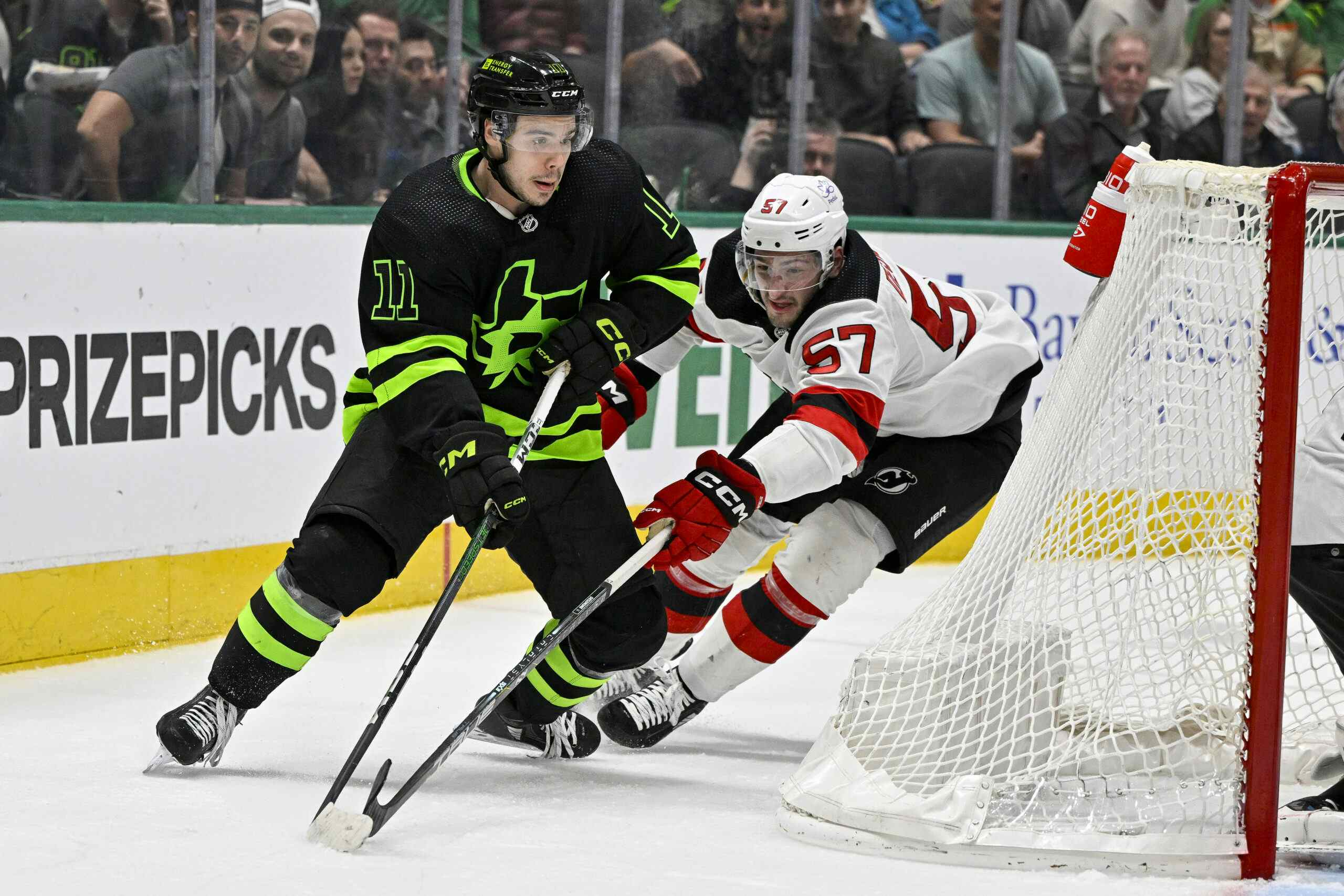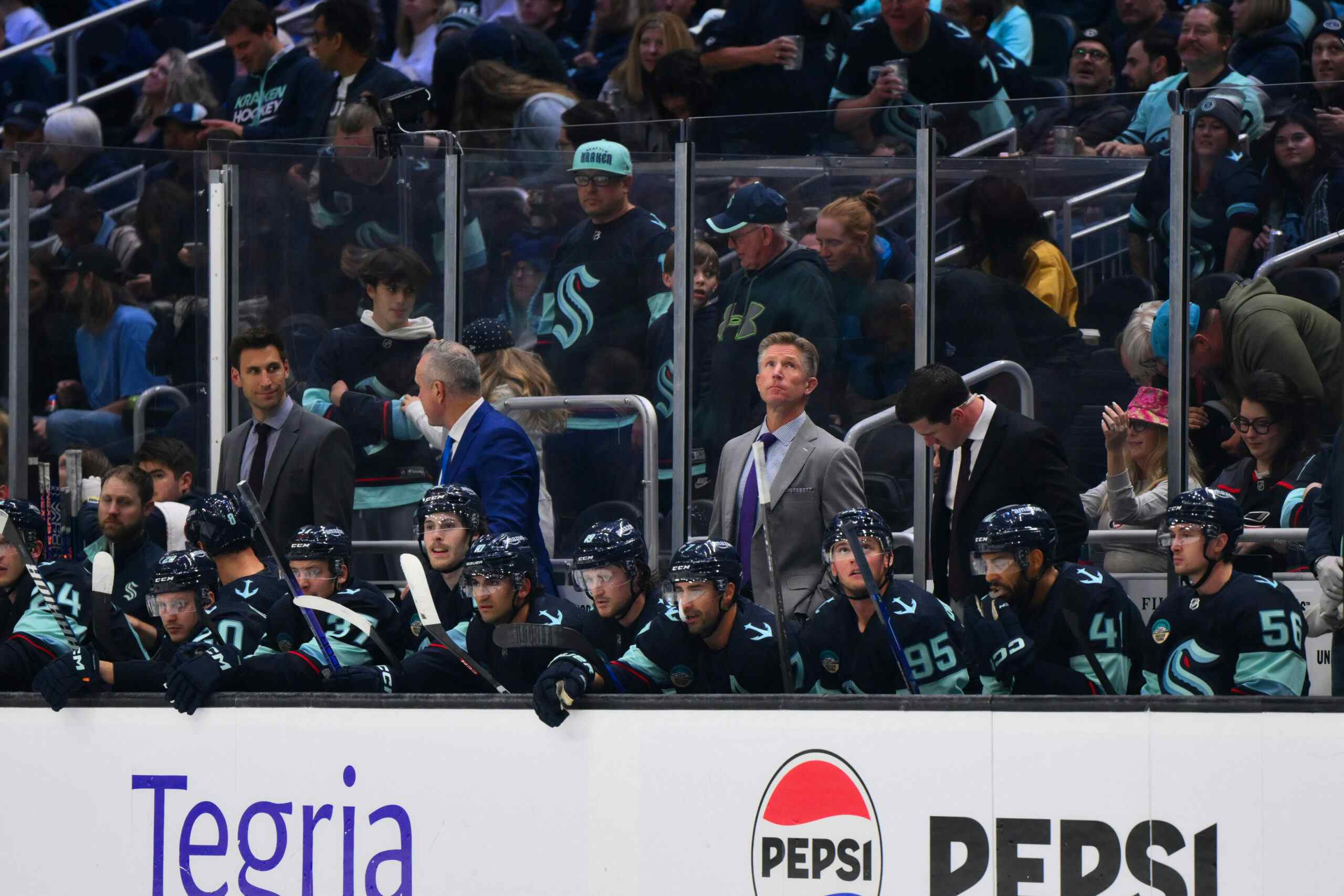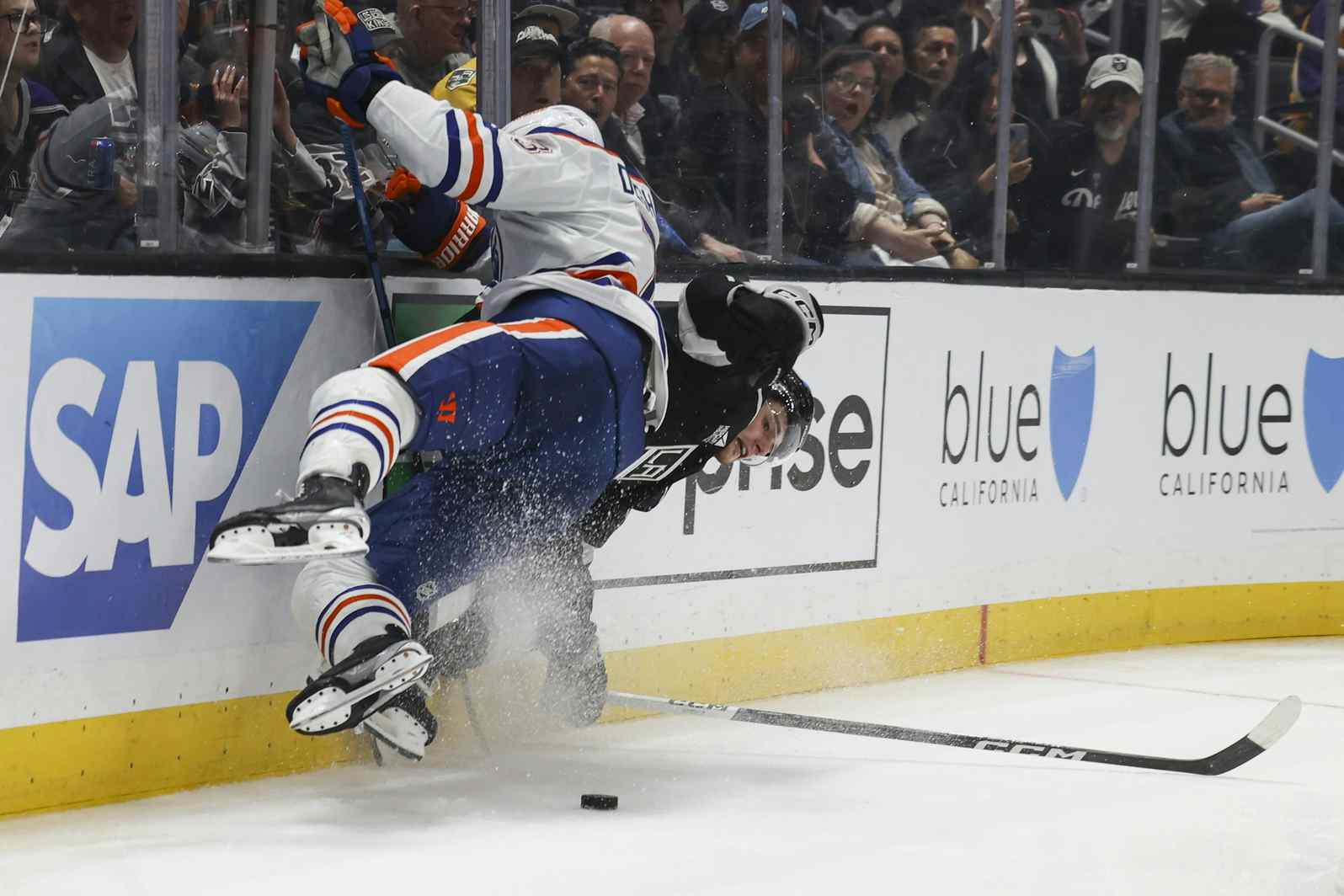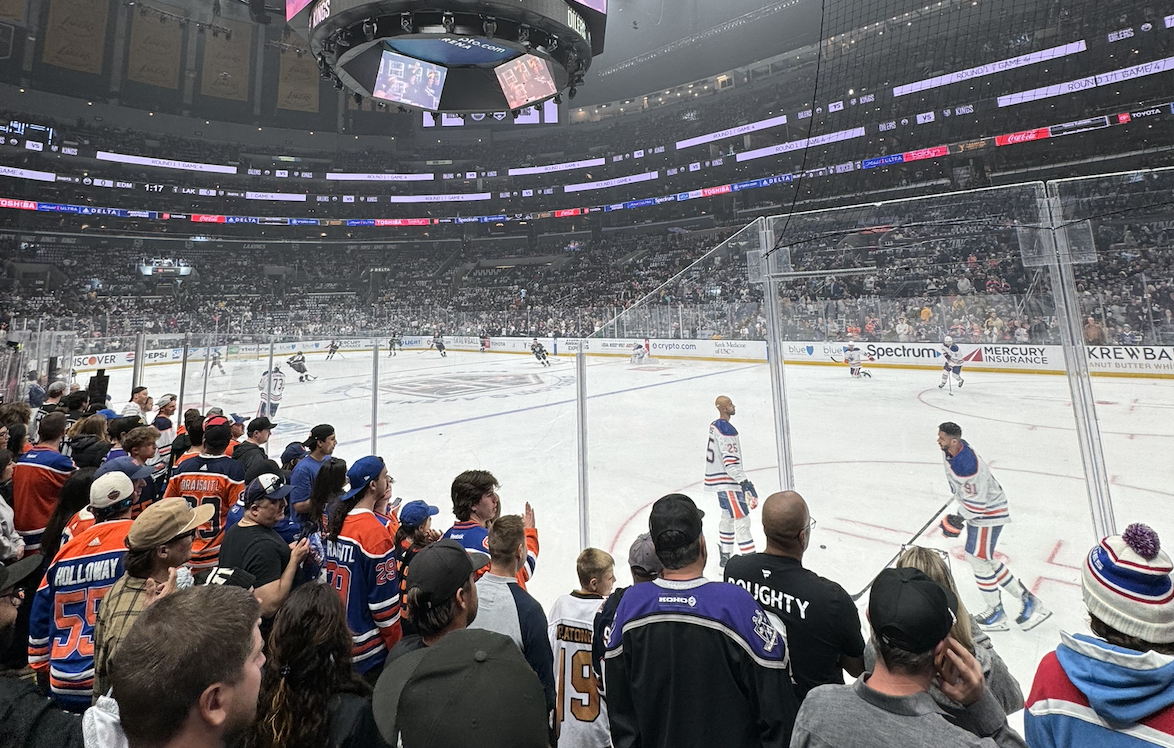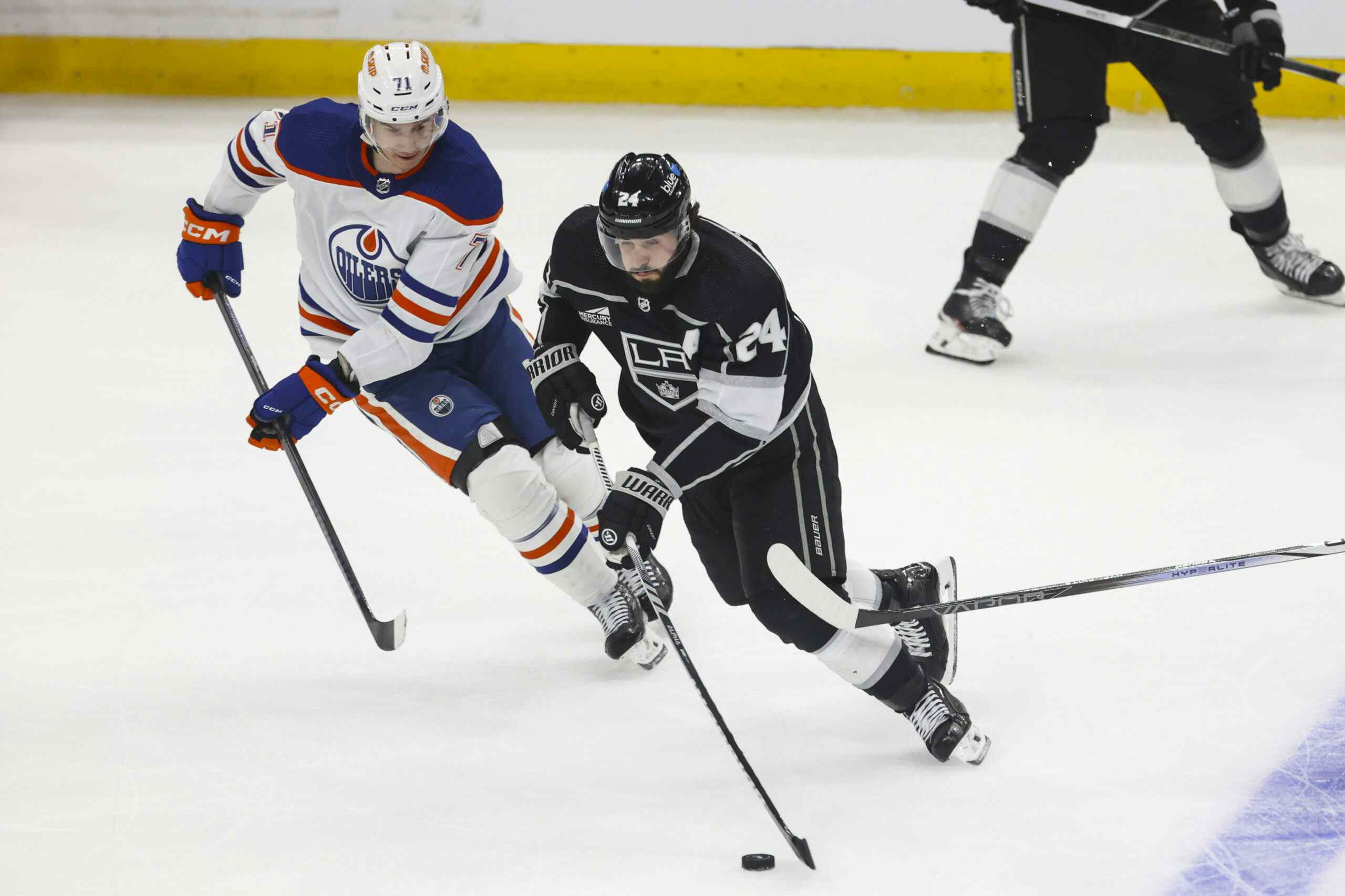Random Thoughts: Why not play the best players more?

By Jason Gregor
5 years agoThe NHL is so close, but still so far away as the regular season doesn’t begin for another month. Until then, there will be plenty of discussion about who looks good in preseason, debates over who will make the playoffs, which teams will struggle and who will be blessed with the opportunity to start the season on Connor McDavid’s right wing.
Before we get to those topics, I want to discuss some different scenarios. A few are outside-the-box, which means many won’t like it because they are different than what hockey fans are used to, but the more I think about it, the more I like it.
LESS IS MORE

Oct 24, 2017; Pittsburgh, PA, USA; Pittsburgh Penguins center Sidney Crosby (87) skates with the puck as Edmonton Oilers center Connor McDavid (97) chases in overtime at PPG PAINTS Arena. The Penguins won 2-1 in overtime. Mandatory Credit: Charles LeClaire-USA TODAY Sports
What if the NHL reduced the roster to ten or eleven forwards?
It would mean more playing time for the best players. The NHL used to have smaller rosters, so this is not completely new. In 1953 they changed the roster from 15 skaters to 16. For the start of the 1971/1972 season they increased the roster to 17 skaters and then prior to the 1982/1983 season the roster increased to 18 and remained that way since.
Wayne Gretzky scored an NHL record 92 goals in 1981/1982 — the last year with a roster of 17 skaters. It might just be a coincidence, because he scored 71, 87 and 73 goals the next three years on an 18-skater roster, but for me, having the best players in the NHL on the ice more is better for the game.
What would happen if Connor McDavid played 24 or 25 minutes a game instead of 21? I’d argue even if he was fatigued, he’d still produce more than the 12th forward would if that forward was 100% rested. Some have suggested the pace of the game would slow down because the best players were playing more. I’m sure that is true, but the best D-men in the league play 27-29 minutes a game, and many of them conserve energy on the ice at certain times. They aren’t always jumping up in the rush.
So what if you only dressed ten or eleven forwards? I’m guessing the back pressure wouldn’t be as intense all the time. It would allow more time and space for the best players to make plays. And I don’t think the “slower” pace would be noticeable enough that people would think the game is slow. Faster doesn’t always equate to more entertaining or skilled.
There are no bad skaters in today’s NHL. They can all move, and that means less time and space. So if every forward is playing two-five minutes more per game, in theory they will be a bit more fatigued, which could lead to more mistakes, and more scoring chances.
Seeing more of McDavid, Sidney Crosby, Evgeni Malkin, Alex Ovechkin, Nikita Kucherov, Patrick Kane, Johnny Gaudreau, Patrik Laine, Auston Matthews, Brock Boeser and the other skilled forwards excites me. I’d love it.
I realize the NHLPA would strongly oppose this, because it would lead to fewer jobs. That is fair. However, if you had one or two fewer players on the roster, then the remaining players would all get a bigger share of the salary cap.
I believe it would make the game more entertaining, and ultimately that is what the NHL should want.
Would you be in favour of a smaller roster?
NURSE IN TOWN

Mar 17, 2018; Sunrise, FL, USA; Edmonton Oilers center Connor McDavid (97) celebrates his goal against the Florida Panthers with defenseman Darnell Nurse (25) in the third period at BB&T Center. Mandatory Credit: Robert Mayer-USA TODAY Sports
Darnell Nurse, despite not having a contract yet, was on the ice this morning for an informal skate with his teammates. Nurse and the Oilers have been very positive throughout this negotiation. He wants to be here and they want (and need) him. I’d be shocked if he didn’t have a contact by next Friday when the Oilers step on the ice for main camp.
“it is good to be here skating with the guys. This in an organization I want to be a part of. Hopefully we get something done before the first day of camp,” Nurse said this morning.
Nurse spent much of his summer working on improving his offensive game. He’d love to get on the powerplay more, but if not he plans on doing more at even strength. He worked with skills coach Adam Oates this summer specifically on doing more in the offensive zone. I asked him to discuss specifics on what he worked on.
“Reading and reacting is one thing, but having more confidence in what I’m able to do offensively is the main thing. I have a toolbox I haven’t really tapped into. I’m looking forward to doing that,” said Nurse.
I then asked if it is about him trying different things once he is in the offensive zone this year?
“I’m not sure it is try, but more about making the right reads. When you first get in the league you don’t want to force anything, and that is the same now, but now it is about having the confidence to make the plays you see,” Nurse said.
So much of the game is between the ears for players. You need the ability to see and read the play, but then you need to believe that you can make the play when you see it. Nurse did a lot of repetitious drills this summer focused on puck movement, and what making the play when he sees it.
Nurse’s skating ability allows him to transport the puck into the zone better than many NHL defenders, but now he wants to become more dangerous once he gains the zone. Look for him to slow the play down, ever so slightly, once he gains the zone and let a play develop rather than force it.
Nurse had 26 EV points last season, tied for 34th with Colton Parayko among NHL defenders. He has the ability to score 30 EV points and if he does that will put him in the top-20 for EV scoring. That should be his goal.
DO ANALYTICS ALWAYS HAVE TO BE NEGATIVE?

Hear me out. We can learn a lot from analytics. Of course they don’t tell the whole story, neither does the eye test, but when presented properly I believe they can really make you think about different aspects of the game. That is great. I love learning.
My concern is I find too many who write with an analytics-only background focus much more on what a player can’t do, rather than what they do well. Remember that NHL players are the best in the world. There isn’t a long list of players who could just step in the league and perform better. I understand critiquing them, it is part of the business, but I’m perplexed why some feel the need to be so negative.
One of my favourite reads is Murat Ates. I like his attention to the small details. He wrote many excellent articles on the Winnipeg Jets last year. His hard work, and insightful articles, landed him a full-time gig covering the Jets this season for The Athletic. Ates does a great job of incorporating analytics and system play into his articles. He doesn’t just applaud players, but he also doesn’t write about them like they are terrible.
Analytics has added a lot to sports. It is great, but those who rely on constant negativity and borderline insults of players makes little sense to me. It is always easier to rip a person when you never have to face them. We all know people who make comments online, that they would never say to a person’s face. I don’t believe that is necessary in covering sports. You can critique a player, without degrading them.
I read Dom Luszczyszyn’s article on the Oilers preview. He made some valid arguments about why the Oilers could struggle, but it was the subtle sniping at players that surprised me.
“Ryan Strome and Kyle Brodziak don’t bring much to the table.”
Brodziak has played 11 NHL seasons and 847 games. He produced 33 points as a 4th line centre, who got some 3rd line time. He is a solid PK player and faceoff guy. He is not flashy, but you don’t stay in the NHL that long by “not bringing much to the table.” Strome transitioned to centre last year, and not surprisingly, took awhile to adjust. He is not a dominant force, very few NHL forwards are, but how many other NHL players are clearly bringing more?
“Jujhar Khaira is fine on the fourth line, though still mostly replaceable.”
Mostly replaceable by whom? I don’t see a long list of players who can just slot in and score 11 goals and 21 points in their first NHL season. It is a very difficult league to score in, now more than ever.
Is he proven? Nope. And he might never be, but I find some who do a lot of analytical research on the NHL have forgotten how difficult it is to play in the NHL, never mind produce at a high rate.
It is easy to rave about McDavid and what he can do. He is a supreme talent, and in a very rare group. It is great to applaud and be amazed by what the highly skilled players do, but remember that the other 70% are still in the top 1% of what they do. It requires a lot of skill, determination and hard work to get there, and I understand part of the job is to criticize them — I do it — but I find lately it seems the criticism has become harsher than ever.
Analytics adds a lot to hockey, but it doesn’t always have to come with an underlying tone of negativity and snark. Ates has proved it can informative and critical without being demeaning.
Maybe I’m wrong, but that’s how I see it. **I don’t the need comment section to turn into insulting Dom or other writers. He does a lot of research and uncovers some very unique things.**
Recently by Jason Gregor:
Recent articles from Jason Gregor

